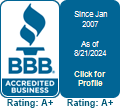There has been a lot written in the past few years about how our cognitive processes are being impacted by “the digital age”, “the Internet” and the constant push and pull of digital content in our “always on” lives. Books such as The Shallows: What the Internet is Doing to Our Brains by Nicholas Carr and Now You See It: How the Brain Science of Attention Will Transform the Way We Live, Work, and Learn by Cathy Davidson explore the work of psychology and brain science experts that indicate that our use of these technologies are fundamentally changing the way we think. These authors discuss resulting “attention blindness” and our constant state of “distraction and disruption” and how they are impacting our ability to think deeply, to concentrate and even to remember.
At AMTR, we are seeing this phenomenon play out with increasing frequency when it comes to paying attention to the details of transportation contracts, tariffs, pricing rules and other documents. The detailed guidance they contain is not being read, followed and/or fully understood, and it is costing shippers and carriers big money. To begin, these documents are often complex in nature. They cannot easily be skimmed or read in a hyperlink fashion with full understanding. Secondly, they address important issues such as rules of application, exceptions and outside governing publications that often need further human interpretation and deeper focus and concentration. At AMTR, we recognize that the “devil” is truly in the details with these kinds of documents and their application to freight billing. Even though we battle the same cognitive impacts as the rest of society, our job is to pay attention to the details – and we do just that for our clients. It is just another way we put “Smart” in our auditing.
AMTR is excited to announce that one of our own, Kelly Kirkpatrick, has been awarded a top-level Southwest Association of Rail Shippers (SWARS) 2016 George J. Elking, Jr. Scholarship. Kelly has worked at AMTR for nine years and currently serves as the Assistant Manager of the Truck Audits Team.
If being a member of Mensa wasn’t enough, Kelly takes her education very seriously. She is currently pursuing a Bachelors in Business Management and regularly carries a full academic load as well working full-time. Kelly’s intelligence shines through in many ways but especially in her work as a freight cost auditor as she has been a top producer in our company year after year. Kelly’s academic pursuits embody our company core value of “seek knowledge always” – we are so proud of her. Congratulations Kelly!
The AAR recently released its second State of the Industry Report for 2016. This year’s report titled, “The Ripple Effect: Freight Rail Delivers the Economy,” for the first time ever shares data that begins to quantify the freight railroad sector’s economic and fiscal impact. Furthermore, it features chapters that focus on the impact of the railroad industry on the national economy, public policy and consumers. Conducted by Towson University’s Regional Economic Studies Institute (RESI), the report states that, “freight railroads trigger a powerful economic ripple effect across the United States. Railroad spending means job growth, dollars to communities and global competitiveness.” AAR President and CEO Edward Hamberger remarks that “freight rail is the basic building block that allows a great sweep of economic activity to take place across the country.” See more of the report at www.aar.org/report-2.
California Compliance Surcharge
Thinking about California often brings to mind thoughts of sunshine and surfing; however, if you’re in the business of shipping goods, the new California Compliance Surcharge being billed by some LTL carriers is probably first and foremost in your thinking. As of May, two prominent LTL carriers, Old Dominion Freight Line and ABF, added surcharges to the majority of freight invoices for shipments originating from or destined to the state of California. Carriers have advised that these charges are necessary to offset the state’s higher operating costs and stricter regulations such as requiring trucking companies to pay drivers for rest breaks and time spent refueling.
These new charges can be found in the carriers’ rules tariff. For ODFL, see tariff ODFL 100-K Item 375 effective 5/2/2016–the charge is $5.95 per shipment. For ABF, see tariff ABF 111-AI Item 162 effective 3/1/2016–the charge is $5.92 per shipment.
These surcharges do not come without complaint as they can add up quickly for those that do business in and out of California. Industry allies in Congress have introduced bills aimed at preventing states from applying regulations like California’s to truckers. Some view these additional charges as the trucking companies’ way of supplementing revenue in a weakening freight market. If this news isn’t surprising enough, there is even talk
about suggesting similar charges such as a surcharge for shipments going to the Northeast where parking is severely limited and costly to truckers.
With all these changes, you need experts working on your behalf to ensure you get what you pay for. AMTR’s expert auditors keep on top of all the freight news so you don’t have to.
When a tariff is replaced by a completely new tariff errors can and will occur. As an example, in a recent audit of one of our client (shipper) accounts, it was discovered that a tariff which had been used for many years had been reissued into a new tariff. The new tariff was published and included discounted rates for one month to ease the transition. In the process of auditing for the client, it was discovered that transition rates had been loaded into the shipper’s freight rating system several months late. This resulted in hundreds of invoices being overpaid. Furthermore, it was found that one of the lanes was published at a considerably higher rate after the one month transition period. AMTR intervened for the client and contacted the railroad to determine the intent for such an increase and, in the process, confirmed that the higher published rate was actually an error (which was corrected in later tariff updates).
The moral of the story is that if you don’t have in-house experts examining your freight charges at this level of detail, then you are probably experiencing unnecessary overcharges. Let AMTR do it for you!
Let’s say you have had a long-standing contract involving many carriers for a through rate. One of the carriers has informed you that they are no longer able to be a part of that through rate. As such, your product and marketing managers must begin to negotiate new rates for that carrier’s portion of a route. When the negotiations conclude, the original contract must also be re-written with the new route and rates. These activities are time consuming, and often while negotiations are still underway, the original contract expires.
In this “gap” between the end of an old contract and the beginning of a new one, carriers must continue to invoice shippers and shippers must continue to pay their freight. As a result of the “gap”, many different scenarios that are not beneficial to shippers may ensue. Invoicing will default to Rule-11 tariff rates. If a point-to-point tariff rate is not available, a high-mileage scale might apply.
If a tariff rate does not exist, the carrier may update it to include one or provide a one-time quote or spot quote temporarily. Customers might even negotiate a temporary rate of their own to be billed collect. Such a “gap” may last a few days or a few months, but when the new contract is finally put in place, carriers will sometimes honor the new negotiated rates back to the date of original contract expiration.
These typically are complex situations to identify but not for the experts at AMTR. Let us review your freight to ensure you never pay more than what was intended.
Most knowledgeable & hands-on for clients
For as long as AMTR has been in existence, our business model has put human, transportation experts at the center of our freight auditing services. Our team of auditors are arguably the most knowledgeable in the industry; each and every one having successfully passed a rigorous apprentice and training program as well as completed required certifications in transportation law, motor carrier operations, etc. Does this mean that AMTR only uses brainpower and not technology to accomplish audits? Absolutely not! We have a robust technology architecture which we call “Smart Tech” and time-tested data mining and overcharge discovery processes we call “Smart Net” that support our auditors in their work, but human auditors are always in the lead. At AMTR we use technology to augment our human experts not to replace them. As such, every client account gets human attention that results on a much more hands-on audit and a closer customer service relationship. Where automated freight audits based on pre-programmed algorithms can only identify the most standard errors, our human auditors get to know our clients and their freight operations on a deeper level which allows more extensive and higher-dollar overcharge recovery. When thinking about freight cost audits for your company get “Smart” and let the experts at AMTR work on your behalf!
The latest transportation funding bill, spearheaded by Sen. Susan Collins, includes a set 73-hour, seven-day work week limit provision for truck drivers. According to logisticsmgmt.com, “the legislation’s 73-hour cap does not make any changes to the current maximum mandatory hours a commercial truck driver can drive in a given week without taking a restart: 60 hours in 7 days and 70 hours in 8 days. Once a driver takes a 34-hour restart—the 73-hour cap precludes the possibility that any driver could drive after having worked 73 hours. In short, drivers have to take a break (34 hour restart) when they hit 60 hours in 7 days or 70 hours in 8 days.” This bill moved out of committee with a 30-0 vote and will be considered by the Senate towards the end of May.
Needless to say, the issue is of great concern to the trucking industry who contends that changes in truck driver hours of service should be based upon statistical evidence provided by the installation of the electronic logging devices (mandated by Congress to be installed by December 2017), rather than on a political decision made by Congress. The issue is so contentious that a group of trucking companies has taken the unusual step of urging Congress to delete the provision altogether.
Because the bill addresses broader issues, such as investments in the nation’s transportation infrastructure and other road safety provisions which are positive, lawmakers state that they are trying to keep the focus on the funding aspects of the bill.
The Heart of Texas Railroad, running 68 miles of track from Lometa, Texas to Brady, Texas is being purchased by an unnamed OmniTRAX, Inc. affiliate. The new name of the line will be Central Texas & Colorado River Railway, LLC and it plans to focus on aggregate, sand and cement customers.
According to Kevin Shuba, CEO of OmniTRAX, “as a distressed asset that can be turned around with our expertise, it’s right in our sweet spot.” He added, “we want to thank the sellers for their efforts in starting to implement a restructuring plan and making the closing of the transaction as smooth as possible.” Although the transaction is in progress, it remains subject to STB approval.
The LTL trucking industry faces many changes on a daily basis. Some of these changes involve the classification or re-classification of products, as governed by the Commodity Classification Standards Board (CCSB). The role of the CCSB is to evaluate proposals for establishing or amending the classification of commodities, commodity descriptions, classes, rules, packaging definitions, specifications and requirements. These classification-related provisions are then published in supplements and codified in the NMFC. As changes generated by the CCSB can be many, managing them can be time consuming and difficult. As such, how can you be sure your freight has not been impacted?
With AMTR on your side, you can be assured that none of these important changes will be missed. Our team of expert truck auditors review the CCSB Public Dockets Files regularly to stay on top of all the latest updates so you can be assured of getting the best freight rates possible.
















